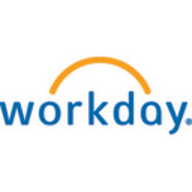

TIBCO ActiveMatrix Service Bus and Workday Business Process Framework compete in enterprise operations, with TIBCO focusing on service-oriented architecture and Workday on business process management. Workday seems to have the upper hand in business process automation, while TIBCO excels in integration and scalability for service orchestration.
Features: TIBCO ActiveMatrix Service Bus is known for integration capabilities, seamless service orchestration, and scalability, ideal for complex environments needing robust connectivity. Workday Business Process Framework automates various business processes, enhances workflow efficiency, and offers advanced configuration options. The main difference is TIBCO's focus on service integrity and Workday's emphasis on business process automation.
Ease of Deployment and Customer Service: TIBCO ActiveMatrix Service Bus requires a more complex deployment, needing technical expertise and comprehensive planning. Workday Business Process Framework offers a streamlined deployment process for quicker configuration and setup. TIBCO provides customer service suited for integration-focused organizations, while Workday offers support for optimizing business process configuration.
Pricing and ROI: TIBCO ActiveMatrix Service Bus has a higher initial setup cost but provides long-term ROI through its extensive integration capabilities. Workday Business Process Framework is cost-effective in setup, offering rapid returns by streamlining workflows. TIBCO's ROI comes from comprehensive service capabilities, while Workday's ROI is realized through efficient business operations. The choice depends on organizational priorities between integration and business process automation.


We monitor all Enterprise Service Bus (ESB) reviews to prevent fraudulent reviews and keep review quality high. We do not post reviews by company employees or direct competitors. We validate each review for authenticity via cross-reference with LinkedIn, and personal follow-up with the reviewer when necessary.